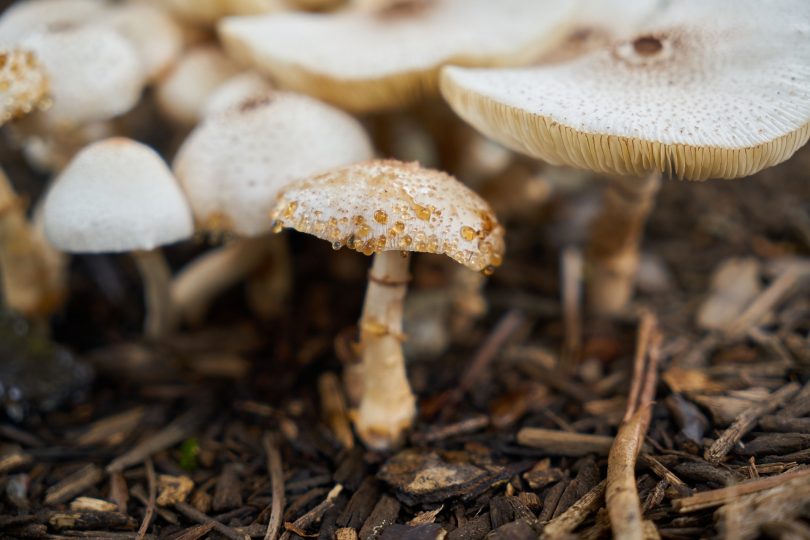What may be traditionally associated with recreational drugs is just as commonly linked to skin care and the beauty industry.
Psychedelics like “magic mushrooms” along with cannabis are increasingly being added to cosmetics thanks to their medicinal properties.
Cannabidiol (CBD), in particular, has become a huge player in the natural skin care realm. According to studies, CBD has been shown to have anti-inflammatory effects on the skin. [1] More specifically, the cannabinoid may help to reduce inflammation in the sebocytes that produce sebum. In turn, this effect may help to calm and even prevent acne breakouts as a result of inflamed or clogged pores.
The anti-inflammatory nature of CBD may also help to reduce the redness, swelling, and discomfort associated with acne breakouts, and may also help alleviate irritation brought on by skin conditions such as eczema and psoriasis. [2]
Further, CBD may also serve as an added benefit to skin care products by helping to keep the skin hydrated and prevent excess dryness thanks to its interaction with the endocannabinoid system in the body. [3]
Similarly, psychedelics found in naturally-occurring substances like edible mushrooms have also found their place in the world of beauty products. The functional properties of mushrooms offer several benefits to the skin when applied topically, such as hydration and antioxidant protection from potential harm from the sun’s rays and pollution.
Mushrooms may also be useful in treating skin diseases and may also have anti-allergic properties, making them a potentially useful product to be added to skin care products. [4]
Psilocybin mushrooms, in particular, have become an increasingly popular ingredient in the cosmetic industry. Proponents of these mushrooms claim that they may have moisturizing and even anti-aging and skin-plumping effects.
While both psychedelics and CBD are finding common ground in the beauty industry, they differ in terms of effects on recreational use and legalities.
Psychedelics like psilocybin mushrooms have hallucinogenic effects on the mind, whereas CBD does not. In fact, while CBD may come from the same plant as its psychoactive cousin tetrahydrocannabinol (THC), it does not induce any effects on the mind.
Further, CBD is federally legal thanks to the 2018 Farm Bill, which distinguished cannabis from hemp, which means hemp-derived CBD products are not considered drugs if they have less than 0.03% THC.
In contrast, the sale, use, and possession of psilocybin mushrooms in the US is illegal under federal law, though certain states like Oregon have legalized them.
Image source: Engin_Akyurt via Pixabay
References:
1- Oláh, A, et al, “Cannabidiol exerts sebostatic and antiinflammatory effects on human sebocytes“, J Clin Invest, September 2014, Vol. 124(9): 3713–3724.
2- Baswan, S.M., et al, “Therapeutic Potential of Cannabidiol (CBD) for Skin Health and Disorders“, Clin Cosmet Investig Dermatol., December 2020; Vol. 13: 927–942.
3- Bíró, T., et al, “The endocannabinoid system of the skin in health and disease: novel perspectives and therapeutic opportunities“, Trends Pharmacol Sci., August 2009, Vol. 30(8): 411–420.
4- Jayachandran, M., et al, “A Critical Review on Health Promoting Benefits of Edible Mushrooms through Gut Microbiota“, Int J Mol Sci. September 2017, Vol. 18(9): 1934.










